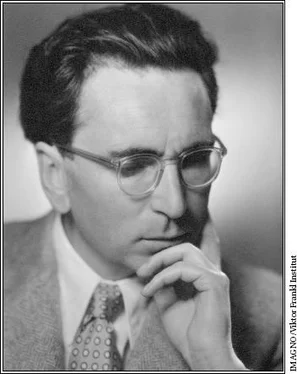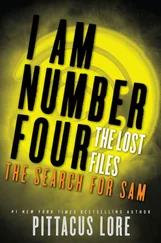With unthinkable haste, people tore off their clothes. As the time grew shorter, they became increasingly nervous and pulled clumsily at their underwear, belts and shoelaces. Then we heard the first sounds of whipping; leather straps beating down on naked bodies.
Next we were herded into another room to be shaved: not only our heads were shorn, but not a hair was left on our entire bodies. Then on to the showers, where we lined up again. We hardly recognized each other; but with great relief some people noted that real water dripped from the sprays.
While we were waiting for the shower, our nakedness was brought home to us: we really had nothing now except our bare bodies—even minus hair; all we possessed, literally, was our naked existence. What else remained for us as a mate- rial link with our former lives? For me there were my glasses and my belt; the latter I had to exchange later on for a piece of bread. There was an extra bit of excitement in store for the owners of trusses. In the evening the senior prisoner in charge of our hut welcomed us with a speech in which he gave us his word of honor that he would hang, personally, “from that beam”—he pointed to it—any person who had sewn money or precious stones into his truss. Proudly he explained that as a senior inhabitant the camp laws entitled him to do so.
Where our shoes were concerned, matters were not so simple. Although we were supposed to keep them, those who had fairly decent pairs had to give them up after all and were given in exchange shoes that did not fit. In for real trouble were those prisoners who had followed the apparently well-meant advice (given in the anteroom) of the senior prison- ers and had shortened their jackboots by cutting the tops off, then smearing soap on the cut edges to hide the sabo- tage. The SS men seemed to have waited for just that. All sus- pected of this crime had to go into a small adjoining room. After a time we again heard the lashings of the strap, and the screams of tortured men. This time it lasted for quite a while.
Thus the illusions some of us still held were destroyed one by one, and then, quite unexpectedly, most of us were overcome by a grim sense of humor. We knew that we had nothing to lose except our so ridiculously naked lives. When the showers started to run, we all tried very hard to make fun, both about ourselves and about each other. After all, real water did flow from the sprays!
Apart from that strange kind of humor, another sensation seized us: curiosity. I have experienced this kind of curiosity before, as a fundamental reaction toward certain strange circumstances. When my life was once endangered by a climbing accident, I felt only one sensation at the critical moment: curiosity, curiosity as to whether I should come out of it alive or with a fractured skull or some other injuries.
Cold curiosity predominated even in Auschwitz, somehow detaching the mind from its surroundings, which came to be regarded with a kind of objectivity. At that time one cultivated this state of mind as a means of protection. We were anxious to know what would happen next; and what would be the consequence, for example, of our standing in the open air, in the chill of late autumn, stark naked, and still wet from the showers. In the next few days our curiosity evolved into surprise; surprise that we did not catch cold.
There were many similar surprises in store for new arrivals. The medical men among us learned first of all: “Textbooks tell lies!” Somewhere it is said that man cannot exist without sleep for more than a stated number of hours. Quite wrong! I had been convinced that there were certain things I just could not do: I could not sleep without this or I could not live with that or the other. The first night in Auschwitz we slept in beds which were constructed in tiers. On each tier (measuring about six-and-a-half to eight feet) slept nine men, directly on the boards. Two blankets were shared by each nine men. We could, of course, lie only on our sides, crowded and huddled against each other, which had some advantages because of the bitter cold. Though it was forbidden to take shoes up to the bunks, some people did use them secretly as pillows in spite of the fact that they were caked with mud. Otherwise one’s head had to rest on the crook of an almost dislocated arm. And yet sleep came and brought oblivion and relief from pain for a few hours.
I would like to mention a few similar surprises on how much we could endure: we were unable to clean our teeth, and yet, in spite of that and a severe vitamin deficiency, we had healthier gums than ever before. We had to wear the same shirts for half a year, until they had lost all appearance of being shirts. For days we were unable to wash, even partially, because of frozen water-pipes, and yet the sores and abrasions on hands which were dirty from work in the soil did not suppurate (that is, unless there was frostbite). Or for instance, a light sleeper, who used to be disturbed by the slightest noise in the next room, now found himself lying pressed against a comrade who snored loudly a few inches from his ear and yet slept quite soundly through the noise.
If someone now asked of us the truth of Dostoevski’s statement that flatly defines man as a being who can get used to anything, we would reply, “Yes, a man can get used to anything, but do not ask us how.” But our psychological investigations have not taken us that far yet; neither had we prisoners reached that point. We were still in the first phase of our psychological reactions.
The thought of suicide was entertained by nearly everyone, if only for a brief time. It was born of the hopelessness of the situation, the constant danger of death looming over us daily and hourly, and the closeness of the deaths suffered by many of the others. From personal convictions which will be mentioned later, I made myself a firm promise, on my first evening in camp, that I would not “run into the wire.” This was a phrase used in camp to describe the most popular method of suicide—touching the electrically charged barbed-wire fence. It was not entirely diffcult for me to make this decision. There was little point in committing suicide, since, for the average inmate, life expectation, calculating objectively and counting all likely chances, was very poor. He could not with any assurance expect to be among the small percent- age of men who survived all the selections. The prisoner of Auschwitz, in the first phase of shock, did not fear death. Even the gas chambers lost their horrors for him after the first few days—after all, they spared him the act of committing suicide.
Friends whom I have met later have told me that I was not one of those whom the shock of admission greatly depressed. I only smiled, and quite sincerely, when the following episode occurred the morning after our first night in Auschwitz. In spite of strict orders not to leave our “blocks,” a colleague of mine, who had arrived in Auschwitz several weeks previously, smuggled himself into our hut. He wanted to calm and comfort us and tell us a few things. He had become so thin that at first we did not recognize him. With a show of good humor and a devil-may-care attitude he gave us a few hurried tips: “Don’t be afraid! Don’t fear the selections! Dr. M—— (the SS medical chief) has a soft spot for doctors.” (This was wrong; my friend’s kindly words were misleading. One prisoner, the doctor of a block of huts and a man of some sixty years, told me how he had entreated Dr. M—— to let off his son, who was destined for gas. Dr. M—— coldly refused.)
“But one thing I beg of you”; he continued, “shave daily, if at all possible, even if you have to use a piece of glass to do it … even if you have to give your last piece of bread for it. You will look younger and the scraping will make your cheeks look ruddier. If you want to stay alive, there is only one way: look fit for work. If you even limp, because, let us say, you have a small blister on your heel, and an SS man spots this, he will wave you aside and the next day you are sure to be gassed. Do you know what we mean by a ‘Moslem’? A man who looks miserable, down and out, sick and emaciated, and who cannot manage hard physical labor any longer … that is a ‘Moslem.’ Sooner or later, usually sooner, every ‘Moslem’ goes to the gas chambers. Therefore, remember: shave, stand and walk smartly; then you need not be afraid of gas. All of you standing here, even if you have only been here twenty-four hours, you need not fear gas, except perhaps you.” And then he pointed to me and said, “I hope you don’t mind my telling you frankly.” To the others he repeated, “Of all of you he is the only one who must fear the next selection. So, don’t worry!”
Читать дальше












